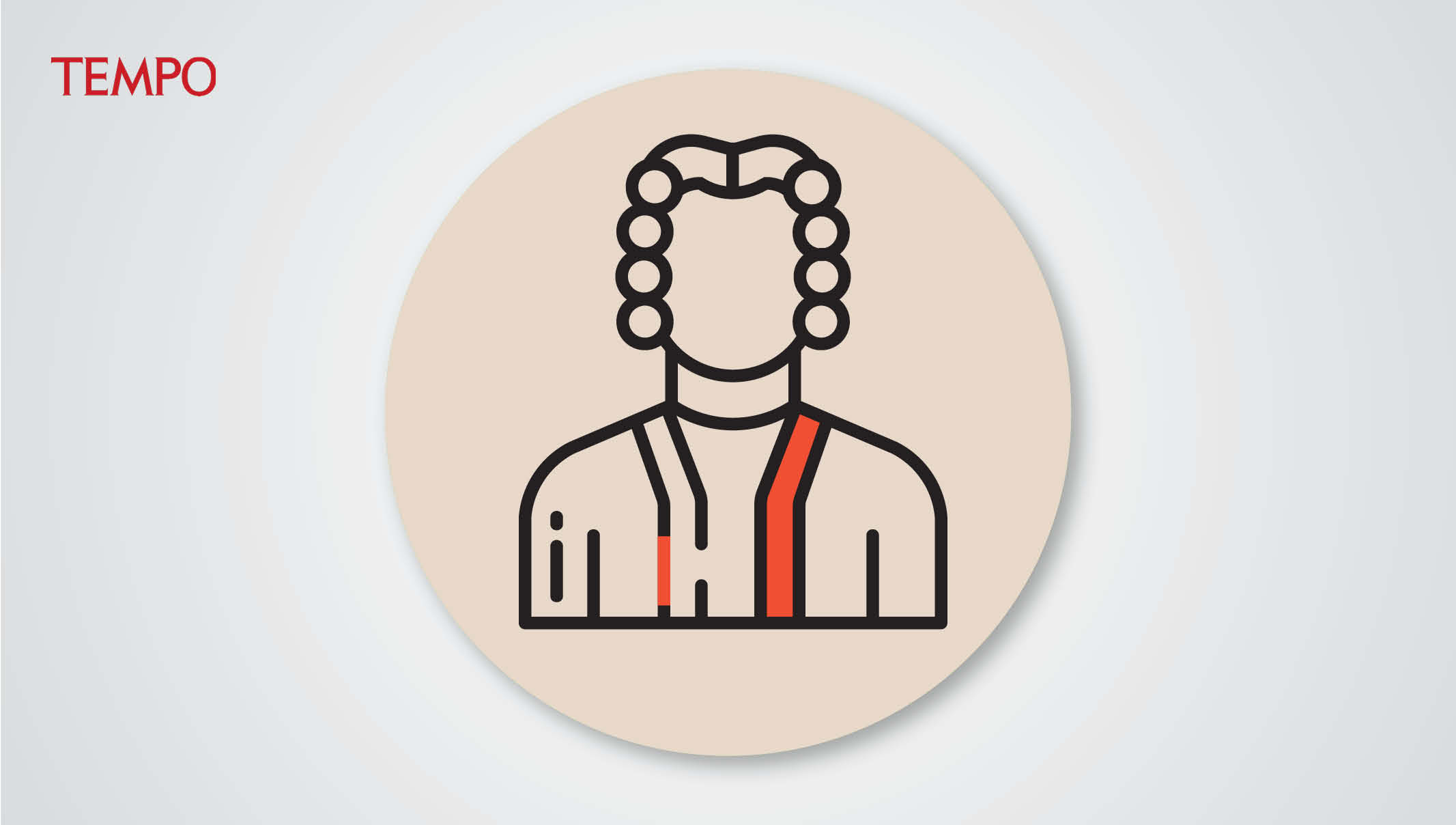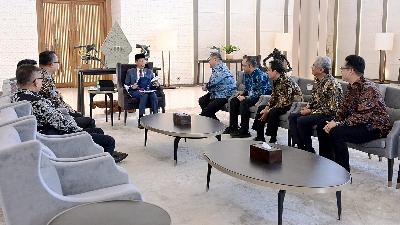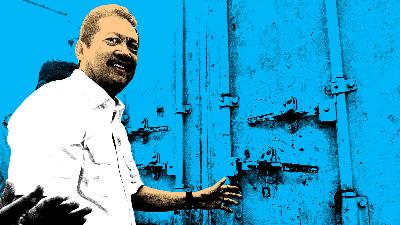Holes in the KPK Leadership Nomination
Monday, October 14, 2024
There are indications that the selection of the KPK leadership for the 2024 to 2029 period is in breach of a Constitutional Court ruling. The process needs to be rerun.
arsip tempo : 174569612714.

THE process of the selection of the Corruption Eradication Commission (KPK) leadership for 2024 to 2029 by the Joko Widodo administration is at odds with the provisions of a Constitutional Court ruling. If it continues, as well as being unconstitutional, the process could endanger the legality of all decisions taken by the newly elected KPK leadership.
The rules for selecting the leadership are laid down in Constitutional Court Ruling No. 112/PPU-XX/2022, which was issued as a result of a legal challenge filed by Nurul Ghufron, Deputy KPK Chair from 2019 to 2024. As well as changing the age limit for candidates, the court extended the KPK leadership term from four years to five.
According to the Constitutional Court, the change in the KPK leadership term was made to bring it into line with the term lengths for the government and the House of Representatives (DPR). The ruling also states explicitly that the president and the DPR from one period cannot select the leadership more than once. Along with the change in the term length, it is written in the considerations, “The selection and recruitment for 2024-2029 will be made by the president and the DPR in the following period (2024-2029).”
This ruling is final and binding. President Jokowi even followed up on it by extending the term of office of the current leadership from the end of December 2023 to December 2024. Unfortunately, his administration did not abide by the clause in the ruling when deciding on the prospective KPK leadership for the next five years. Selection of candidates began in May 2024 with the appointment of Finance and Development Supervisory Agency Chief, Muhammed Yusuf Ateh, as head of the selection committee and IPB University Dean Arif Satria as his deputy. Together with the other seven members, they also selected prospective members of the KPK Supervisory Board.
On October 1, the selection committee decided on a list of 10 candidates to be sent to the DPR, which will select five of them. The president is obliged to forward the list of candidates to the DPR within 14 days of receiving the selection list. Given the provisions of Ruling No. 112/PPU-XX/2022, the DPR should refuse to go through with this nomination.
If it is continued, there are considerable risks. Those found guilty of corruption could challenge the legality of the cases they are caught up in. A corruption suspect could, for example, use the legal holes in the selection process of the KPK leadership as a reason to demand a pre-trial hearing. Imagine if over five-year term of the elected leadership, the KPK spends most of its time dealing with this kind of issue. The eradication of corruption will not be carried out effectively.
Jokowi’s actions at the end of his administration are clearly endangering the war against corruption. He is giving the impression of wanting to ensure that the 2024-2029 KPK leadership comprises people who can be controlled. However, the ‘user’ of the institution will no longer be Jokowi, but his successor, Prabowo Subianto. It is the new government, which will begin working from October 20, that should process this nomination.
Prabowo needs to rerun the nomination process in order to prevent the work of the KPK being challenged during his administration. There is still plenty of time before the term of the current KPK leadership ends on December 20. If not, the KPK will find it increasingly difficult to deal with ‘leaks’ of state budget funds, as Prabowo has promised during the campaign period.











